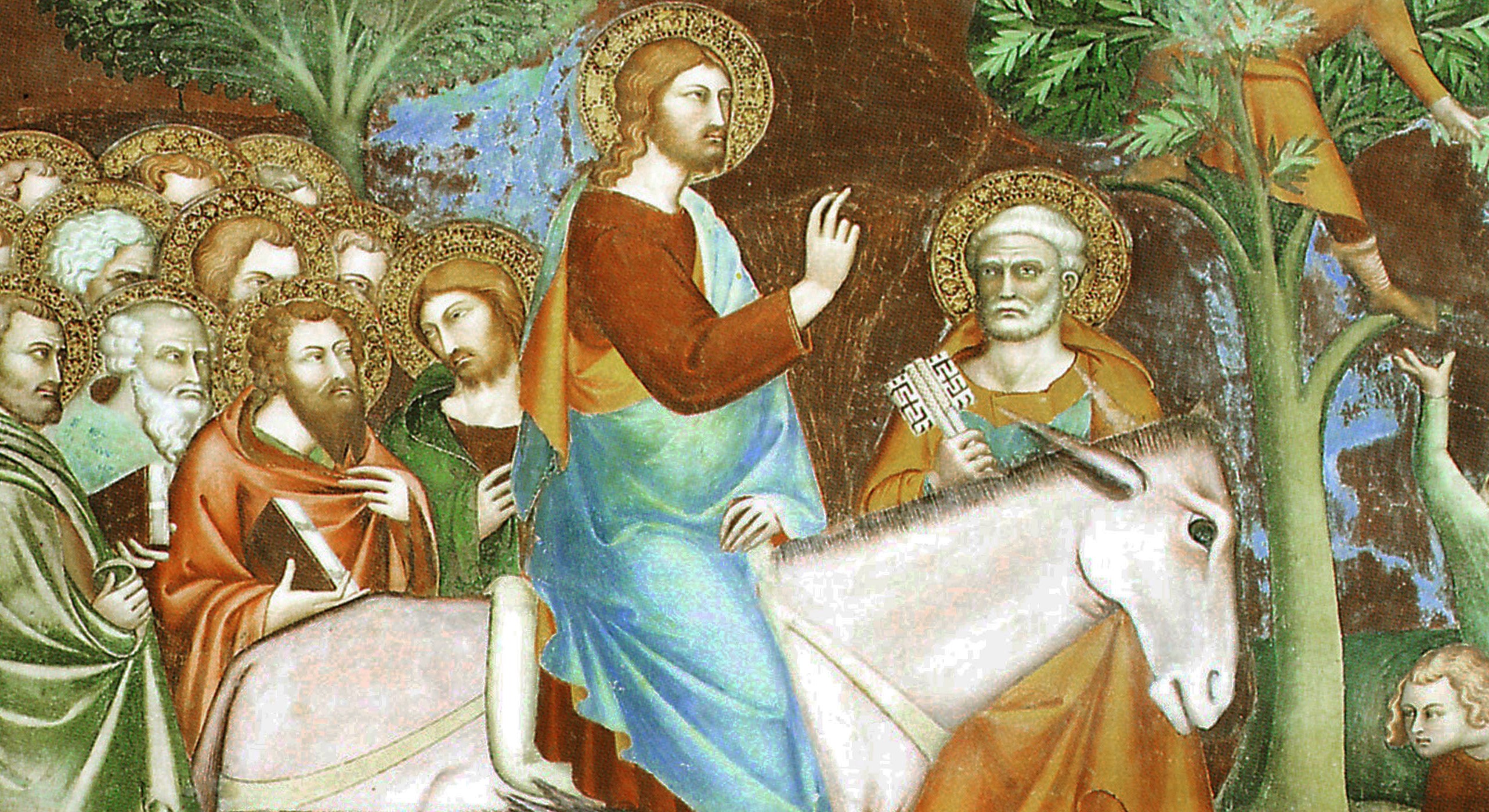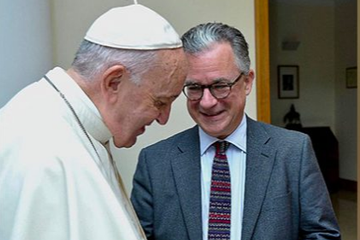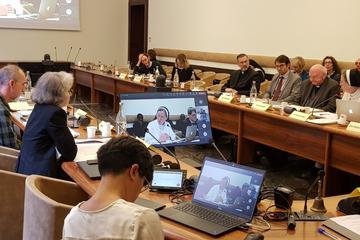
Abbot Primate Gregory J. Polan, OSB
Rome - How would you describe Jesus in Matthew’s Passion account? How does he act in broad and significant ways? What title would you give him? There are numerous ways in which Jesus can be described in Matthew’s Passion account; the one I would use is, “Jesus, the Master Teacher.”
The account of Jesus in the Garden of Gethsemane takes one back to a significant part of the Sermon on the Mount, where Jesus tells his disciples how to pray. In teaching his disciples how to pray, giving them the “Our Father,” his words also tell them how to live their lives. “Your kingdom come; your will be done on earth as in heaven” (Mt 6:10). Then, in the Garden of Gethsemane, we hear Jesus himself pray to the One he called “Abba”: “My Father, if it is possible, let this cup pass from me; yet, not as I will, but as you will” (Mt 26:39). Jesus not only taught the disciples how to pray, he showed us and them how he himself prayed.
A good teacher puts into practice what he or she instructs; he instructed his disciples to pray, and now he practices what he teaches. On Palm Sunday we hear Jesus pray, “Your will be done.” Here, he demonstrates a willingness to surrender to whatever threatening situation was to come. When we read through the Passion account in Matthew’s Gospel, the act of surrender to the mysterious and unfolding will of God included betrayal by his disciples, rejection by the spiritual and civil leaders, mockery by soldiers, a shameful death by execution, seeing the terror and grief of his mother while dying, and a sense of abandonment by the One whose love he counted on and called “Abba.”
Though it may not be a popular act in our own day and age, surrender or submission to the will of God can include things we would never have considered, even in our worst nightmares. These cruel events of the Passion were the culminating point of the mystery of the Incarnation — sharing our humanity in all its beauty and its brutality. Yet Jesus, as the Masterful Teacher he was, showed us how total his life was in accordance with his prayer.
We now all stand in a moment of significant distress. All of humanity has been awakened to a threatening life-and-death situation with the coronavirus. I would not want to suggest in any way that this virus has come upon us as the will of God for us. Yet, in the midst of what has befallen us, we are asked to submit to regulations and restrictions, which draw boundaries we would not have chosen for ourselves.
If, in the pain of submitting to these restrictions set up by the government, health professionals, and the Church, we can trust that God is leading us through this situation of crisis, we can also believe that this experience will lead us in the end, to an experience of Easter, of new life, of a better life. Jesus the Master Teacher shows us that the outer act of surrender and the inner attitude of confident submission walk hand-in-hand with our daily prayer, “Thy will be done.” How ready are we to pray those words with conviction?
Abbot Primate Gregory J. Polan, OSB. A monk of Conception Abbey, Missouri, in the United States, and abbot there for 20 years, in 2016 he was elected Abbot Primate of the Benedictine Confederation by all the Benedictine Abbots of the world in 2016. He is, therefore, also Abbot of the Primatial Abbey of Sant’Anselmo all’Aventino, in Rome, and Grand Chancellor of the Pontifical University of Sant’Anselmo.
Photo: Wikimedia Commons, Vignaccia76, Christ’s Entry to Jerusalem, Lippo Memmi.


